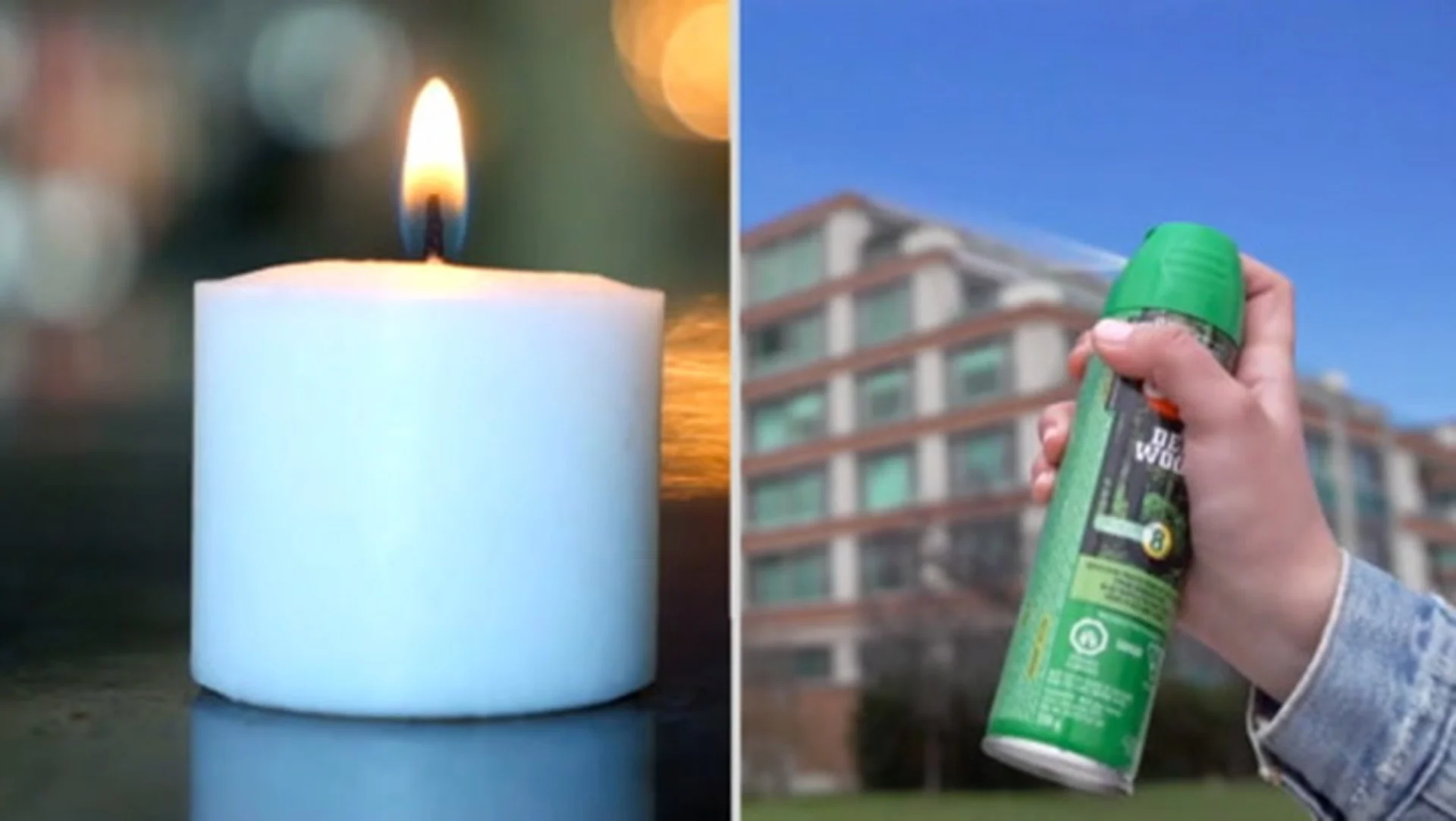
Candles or DEET? What is the best way to prevent bug bites?
Warmer temperatures have arrived — and that means mosquitoes have, too! Find out what is most effective in warding off those bites
The sun is out, flowers are blooming and the mosquitoes are back.
There are very few flaws in a Canadian summer, but the bugs certainly battle for the top spot. When repelling bugs, especially mosquitoes, what are you using?
Candles like citronella? Or sprays with DEET?
If you answered candles, you're likely wasting your money, according to pharmacist Victor Wong.
“Studies have shown little evidence that citronella candles work,” says Wong. “Some even show regular candles working just the same as ones that have specialized bug repellent.”
SEE ALSO: This homemade trap will save you from these bugs you hate
The candles certainly add a gorgeous glow to your patio, but the mosquito battle is not won with a little flame.
“DEET has been used since the 1940s and is the most effective product on the market to prevent bug bites,” says Wong. “If you are serious about repelling mosquitoes, you should be using a product that contains DEET.”
There are mixed reports as to why DEET works, however, some suggest it blocks the smell of sweat or breath, making humans undetectable. Other reports have hinted at the scent of DEET being very unappealing to bugs, which inhibits them from landing.
DEET WORKS, BUT IS IT HEALTHY?
Overall, DEET has been deemed as healthy. Year-over-year consumer report experts agree that it is not harmful if you use this product properly.
To minimize any potential health impacts, however, you should never spray DEET into your face, ingest it and never use on children six months old or younger.
“The most common side effect of DEET is a rash, skin irritation or if it gets into your eyes, they may water,” said Wong.
WATCH BELOW: BACTERIA IS KEY TO MOSQUITO MANAGEMENT, EXPERT SAYS
It is important to know you do not need to find a product that is 100 per cent DEET. Bug repellent products that contain 30 per cent DEET are safe and effective. Studies have shown the concentration of DEET determines how long it lasts, not how well it works.
When it comes to protecting yourself against mosquitoes this summer, Wong also mentions the number of bug bites is "very dependent" on location, time of the year and activity of the individual.
“Areas where there are stagnant pools of water also bring a higher risk of mosquito bites. Usually, periods of heavy rainfall followed by warm or hot weather bring on a large number of mosquitoes because it encourages mosquito breeding," said Wong.
Next time you hear the unwanted buzz of a mosquito, remember candles likely won’t help you win the battle.
